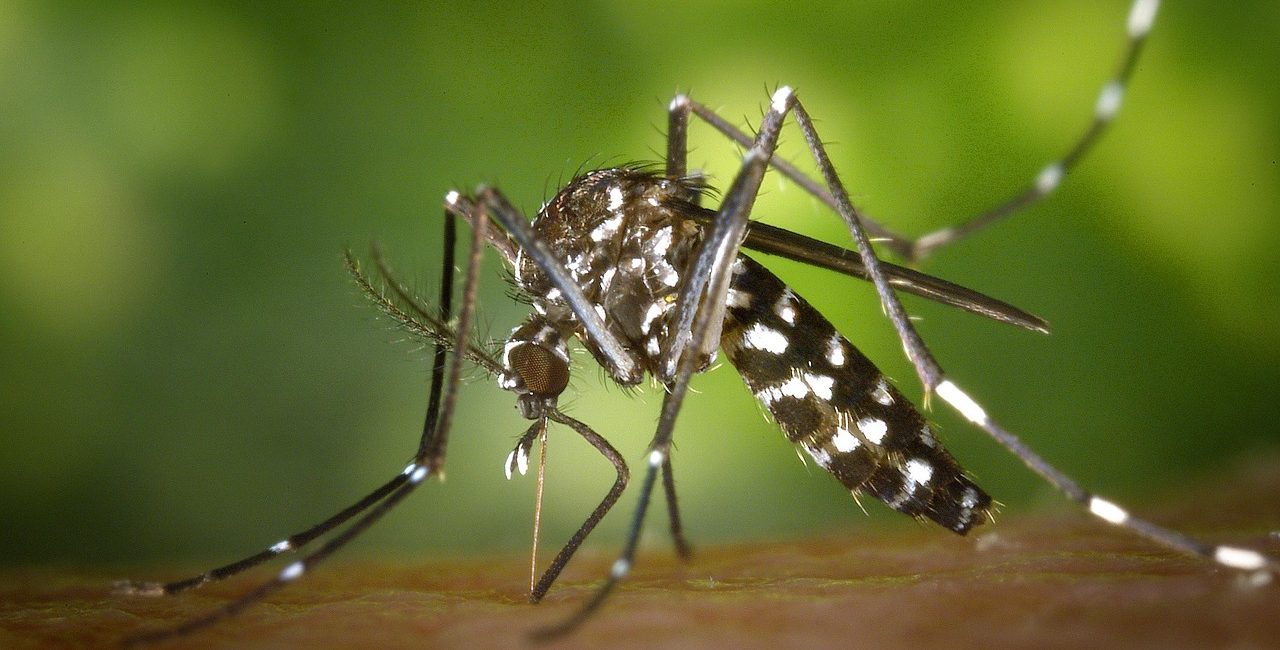Each week, more than 120,000 tiger mosquitos (Aedes albopictus) are released in parks in Alicante and Elche. However, there is no reason to panic. They are males, which are harmless because females cause the bites.
And they have been sterilised, so the eggs laid by the female are no longer viable, resulting in a population reduction of up to 80% that has spread across virtually the entire province of Alicante. The Ministry of Health reports that there are just six free municipalities.
Since the end of April, the Generalitat (Generalitat) has launched a program to combat this invasive bug in Alicante. This insect can carry up to 22 diseases and is much more active than the usual one (culex pipiens), biting multiple times in a succession and being most active during the day, as opposed to the native bug, which is mostly nocturnal and bites just once.
According to the regional department, the Regional Ministry of Agriculture, Water, Livestock, and Fisheries has already released almost two million mosquitoes between Alicante and Elche and expects to release another 7.5 million between the end of this year and 2026. All of this is done to prevent a proliferation that is not only bothersome owing to the repeated bites inflicted by females, but also has the potential to operate as a disease vector.
Since 2016, the Generalitat (Catalan government) has successfully tested the Sterile Insect Technique (SIT) against this bothersome invasive fly, which “massacres” many people with its bites during the summer. The efficacy rate is extremely clear: the population is reduced by 60–80%. It has been in effect for four months in the province’s two main cities, Alicante and Elche.
A biotechnology plant that produces mosquitos
The Sterile Insect Technique (SIT) is employed at biotechnology centres to mass grow tiger mosquitos. After being irradiated, they are released onto the earth. These are male mosquitos that do not bite, and when they mate with females, they do not have children because females may lay up to 80 eggs at once.
In the case of the Generalitat, the bioplant is located in Caudete de las Fuentes (Valencia), a unique facility in Europe where mosquitos are cultivated and sterilised using a technique developed to combat the fruit fly.
Since 2016, the Ministry of Agriculture has conducted pilot testing in various areas across the provinces of Castellón and Valencia. These experiments have been greatly expanded over the previous three years, with Alicante now included, following the successful reduction of the tiger mosquito population, which has reached up to 80% in some areas.
In the province of Alicante, releases began at the end of April, two to three times each week in Elche and Alicante, and will continue until the end of November, spanning the fly’s peak activity period, which coincides with the warmer months. The regional ministry reports coverage of 17 hectares in Elche and 34 hectares in Alicante.
Here are the parks where they are released
In Elche, where the initiative was presented in early June, the releases are taking place in 10 orchards in the palm grove: Hort de Baix, Hort de la Mare de Deu, Hort de la Molinera, Hort de la Parteta, Hort de la Malena, Hort de Martí Castany, Hort del Colomer, Hort del Real, Hort del Xocolater, and Hort Novet. It is expected to release over 1.2 million mosquitoes in 2025, with nearly 700,000 already released, and another 1.2 million in 2026, at a rate of 41,000 mosquitoes each week.
In Alicante, although the scope of this measure was not specified, releases are taking place in the La Marjal, Lo Morant, and El Palmeral parks. It is expected to release approximately 2.5 million mosquitoes in 2025, with over 1.3 million already released, and another 2.5 million will be released in 2026, for a total of more than 82,000 mosquitoes every week.
For example, on Wednesday, September 3rd, 10 boxes were released in El Palmeral, Alicante, holding a total of 7,500 mosquitoes—750 per box. The emission usually occurs early or late in the day.
The Generalitat (Catalan Government) has said that the strategy of releasing sterile male tiger mosquitoes in recent years in the Valencian Community has been extremely efficient, resulting in mosquito population reductions of more than 70%. This release may be expanded to other parts of Alicante in the following years. However, the success of the campaign in Alicante and Elche will not be determined until 2026.
A vector of diseases such as dengue, Zika, and Chikungunya
The tiger mosquito can spread diseases like dengue and chikungunya by biting diseased people or animals and then biting healthy ones. It can also spread other viral infections, like the Zika virus and yellow fever. Females, if infected with viruses, can pass them on to their kids.
As a result, its potential to spread diseases is stronger than that of the common mosquito, which is concerned about the ease with which it can transmit the West Nile virus, also known as West Nile fever.
In addition, the tiger mosquito can attack multiple times in a row, making its bite more irritating.
Parks and gardens in major cities are great urban environments for the tiger mosquito because they provide ideal conditions for its development due to the concentration of people and pets, as well as the presence of plants and places where mosquitoes can take refuge, feed, and so on.
Carles Tur, the biologist and technician in charge of this initiative for the Generalitat (Catalan government) through the public business Tragsa, emphasised the significance of this action last week during a mosquito release in Alicante’s El Palmeral park. “The presence of female tiger mosquitoes poses a risk to the public , not only because of the bites, which are already a nuisance, but also because they transmit up to 22 diseases, including Zika, dengue, and chikungunya,” he wrote.
“The presence of female tiger mosquitoes poses a risk to the public, not only because of the bites, which are already a nuisance, but also because they transmit up to 22 diseases.”
As a result, Tur stated that “the Ministry of Agriculture has initiated a biological control project based on the sterile insect technique, which consists of first producing large quantities of male tiger mosquitoes, which do not bite.” These males are sterilised and then released in city parks and gardens. These sterile men mate with wild females, and the ladies lay eggs, but the eggs are not viable, so the population declines generation after generation.”
Present in 135 of the province’s 141 municipalities
According to the most recent Ministry of Health data, as of August 2024, the tiger mosquito had been discovered in 135 of Alicante’s 141 municipalities.
Thus, according to the list compiled from data from the Entomology and Pest Control Laboratory of the Cavanilles Institute of Biodiversity and Evolutionary Biology of the University of Valencia and the National Centre for Epidemiology – Mosquito Alert Surveillance System in Spain, the tiger mosquito has not been detected – which does not mean it is not already present – in Biar, Benifallim, Penàguoia, Fageca, Benillup, and Benifato.
In addition, traps for tiger mosquitos laying eggs have been placed in the regions where the release is taking place. The viable egg rate can be checked to ensure that the campaign is effective and that no outbreaks occur in the area.
Scope of Action
Between 2025 and 2026, the Generalitat intends to release 28 million specimens throughout 160 hectares in Polinyà de Xúquer, Paterna, Torrent, Sagunto, Elche, Castellón de la Plana, València, and Alicante.
According to Minister of Agriculture Miguel Barrachina, the treatment’s favourable impact extends to 300 hectares as mosquitoes spread across the ecosystem.








No Comment! Be the first one.